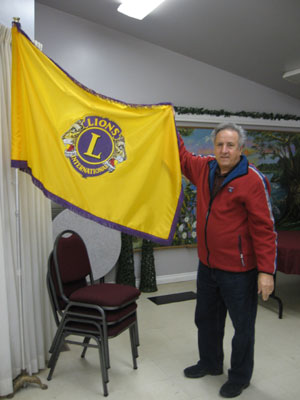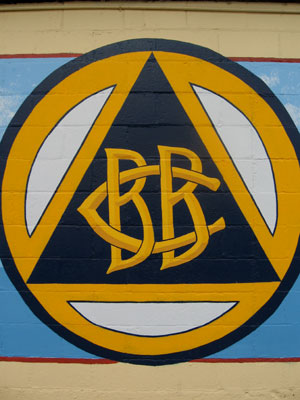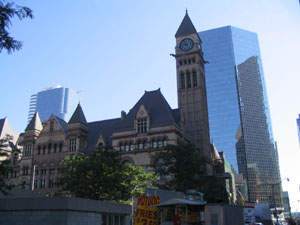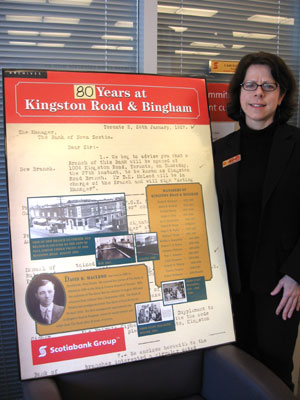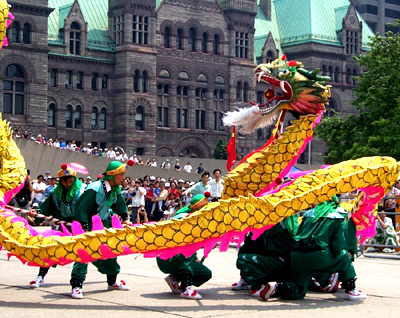For many decades now the Beaches Lions Club has been an integral part of the Beach Community and the driving force behind one of the flagship events: The famous Beach Easter Parade is an important fixture of the Beach community calendar every year, an event that draws tens of thousands of people and provides fun for the whole family. Together with Centre 55 and the Beach Metro Community News, the Lions Club also recognizes outstanding community service and awards the Beach Citizen of the Year Award. This was definitely an organization that I wanted to find out more about.
Talking to the real community experts, I asked Sheila Blinoff and Carol Stimmell from the Beach Metro Community News who I should to talk to and they suggested Joe Bordieri, a long-term Beach resident who has been involved with the Beaches Lions for many years. On a Tuesday night for which a Director’s Meeting was scheduled I headed down to the Beaches Lions Club building, located right next to Ashbridges Bay, just a few meters southwest of the intersection of Coxwell and Lakeshore Boulevard.

Joe Bordieri shows the Lions Club flag
As people were arriving for the meeting, Joe and I went upstairs into the club’s meeting room and we sat down so Joe would be able to give me an overview of the oldest service club in the Beach. The Beaches Lions was founded in 1935 and Joe explained that in the “good old days” the club’s main role was to entertain children, seniors and help anybody in need. Membership was closed to 80 members from the business community, and between the 1930s and the 1950s there could only be one member from each trade or profession.
Internationally the Lions Club also has a proud, long-standing history. Founded in 1917 by a Chicago business man named Melvin Jones, the club today has more than 1.3 million members in over 200 countries across the world. Its founder believed that local business people should broaden their horizons and participate and contribute to improving their communities and the world in general. Three years after the club was founded in Chicago, it went international with the first Lions Club being established in Canada in 1920. From there the Lions Club expanded internationally throughout Europe, Africa and Asia. A particularly active time for international expansion were the 1950s and 1960s.

A Beaches Lions Club directors meeting
In the early years, one of the mottos of the club was that “no club shall hold out the financial betterment of its members as its object”. Unselfish service has remained one of the key objectives of the Lions Club.
A key point in the Lions Club’s history was a speech made by Helen Keller in 1925 where she challenged Lions to become “knights of the blind in the crusade against darkness.” Ever since then Lions clubs have actively dedicated themselves to serve the blind and visually impaired. Lions Club members are working hard to end preventable blindness, but they also participate in a wide variety of community activities.
As part of its dedication to working with the visually impaired, the Beaches Lions Club sponsors blind people to work with seeing-eye dogs. It costs about $8000 to train a seeing-eye dog, and there are two institutions providing that training: an organization in Oakville, just an hour outside Toronto, and another one in Oakbrook, Illinois.

The Beaches Lions Club’s flagship event: the Toronto Beaches Lions Club Annual Easter Parade.
Lions clubs have long held an esteemed and highly respected role in communities across the world. Joe Bordieri, who came to Canada from Italy more than five decades ago, explained that “in the old country only the rich and famous” would join the Lions Club. When he first joined in 1977 he was very enthusiastic. For many years he worked hard to become the President of the local club since he always had an interest in the local community.
Creative fundraising ideas were employed over the years. In the mid-1980s the club would hold fundraisers called “Giant Bingo” with a $5000 jackpot and more than $20,000 in prizes. Bingo would be held at the Greenwood Race Track (formerly the Woodbine Racetrack) for six to eight years. Throughout the 1960s the Lions Clubs would donate wheelchairs and telephone devices for the deaf. Oil tanks were being donated to needy families in the 1950s and 1960s. In 1967, the Beaches Lions Club built a Centenary Lions Home for Seniors at 55 Norway Avenue. The Lions Club managed it for one year and then donated it to the City of Toronto for one dollar. Over the years, the Beaches Lions also sponsored a wading pool in Kew Gardens. This pool is still fully operational today, a fixture since the 1950s.

